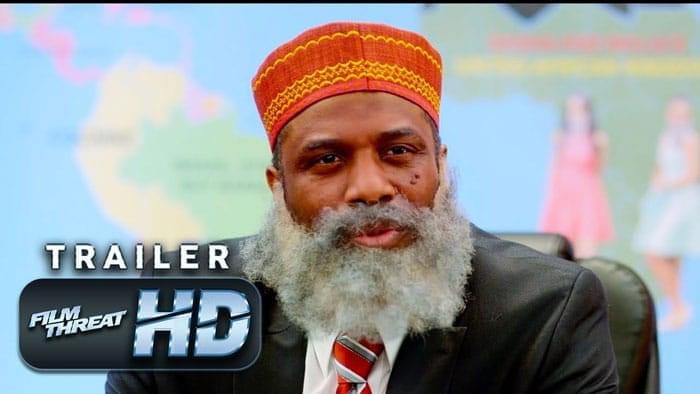
With all the technological options that the medium offers today, what a relief it is that a select few films rely solely on character motivation to create suspense. As elegant as some (though few) of the CGI spectacles may be, the strongest talents behind the camera still work best using the fears and desires of well-drawn characters. And what a pleasant surprise it is to encounter a German film – the 2006 Academy Award Winner for Best Foreign Picture – that realizes character-driven suspense with economy and clarity.
“The Lives of Others,” written and directed by newcomer Florian Henckel von Donnersmarck, may have the advantage of a paranoid-ready setting – i.e., 1980s German Democratic Republic (GDR), better known to the red-scared as “East Germany.” But von Donnersmarck creates a milieu so realistic that the attention-worthy setting becomes just a backdrop, while an intricate tale, as suspenseful as it is humanistic, takes over.
“Lives” avoids sensationalism by focusing on Hauptmann Gerd Wiesler (Ulrich Mühe), an officer/instructor with the Stasi (the GDR’s “Ministry of State Security”). His official job is to sniff out any supporters of “the West” who will supposedly ruin the “peace” and “well-being” of the GDR’s socialist state. But his real duty is to spread fear in all citizens to thus intimidate those ready to defect or ignite resistance. (If only these intimidating practices were the products of fiction: When a good friend of mine, language professor Guillaume Lavelle, crossed the East/West border in the 1980s, he briefly left his native German tongue to speak English to an American tourist – the Stasi detained him for questioning, without explanation.)
As one committed to instilling such paranoia and injustice, Wiesler is an overachiever for the Stasi. He becomes especially eager when assigned surveillance duties over a premiere playwright, Georg Dreyman (Sebastian Koch), who appears committed to the state but, as Wiesler’s guilt-instigating boss notes, may be deceptive. The Stasi wire Dreyman’s entire flat – every wall socket and switch is opened to install hidden microphones. Wiesler sets up monitoring equipment in Dreyman’s attic, like a parasite monitoring its host. He records every single event – from phone calls, to meals, and lovemaking – on a typewriter, and its pages enter the Stasi’s mammoth library of evidence.
Wiesler first appears instructing a class of Stasi trainees, where he relates the unit’s brutal interrogation methods. Here von Donnersmarck wastes no time presenting this character as a sadistic fascist: when a student challenges the watchdog policies and extreme methods, such as keeping a detainee awake for 48 hours straight, Wiesler coldly marks his name on the class chart, a move that’s both routine and chilling in its implication. As Wiesler, Mühe shows a bloodless reliance to the Stasi, until it leaves him broken. When it does, Wiesler finds himself struggling to reassess his moral conscience for the first time in his professional career, without a clue about what his new perspective will force him to sacrifice.
On the other side of the surveillance, the socialist playwright Dreyman feels safe in a Stasi-infested Berlin. He feels protected even when the suicide of his friend/former director encourages him to write about GDR suicide rates for a West German audience. It is when Wiesler first learns of Dreyman’s plan, and to what extent the Stasi will punish him for it, that the former is forced to question his beliefs and duties.
The Stasi’s vice grip creates a social climate with violence bubbling just below the surface. In the hands of an impressive cast, the film has a personal approach to realizing this large-scale, ugly political situation.
Von Donnersmarck’s seamless script and direction are never preachy or heavy-handed, and show that the large number of the GDR’s citizens struggled just to survive. But as was also true for many prisoners of Auschwitz and Birkenau, to survive among the Stasi meant exploiting weaker victims. The film’s tragedy comes at this cost, but its uplifting elements come from those who take responsibility against such madness and rebel, regardless of the personal toll.

“The Lives of Others,” set in East Germany not long before the fall of the Berlin Wall, tells the moving story of a police investigator forced to confront himself and the work he does. In a society poisoned by secrecy, fear and the abuse of power, a number of the movie’s characters — artists, actors, writers — must look deep inside and decide what they are made of; none more so than the investigator.
This is a movie that took me to a place and time that felt very authentic, for a tale that was very satisfying.
Ulrich Muhe, who plays the investigator, is mesmerizing, and the young director is to be applauded for this, his first full-length film. Some have compared “The Lives of Others” to Coppola’s “The Conversation” but the two have completely different story arcs and are only superficially similar.
Both my companion and I felt this was our favorite of the six films we had a chance to see at the festival.